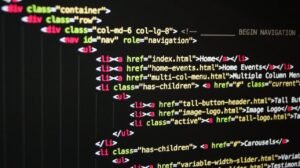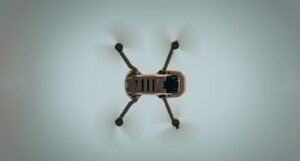Things AI Can’t Replace
In a world driven by technological advancements, artificial intelligence (AI) has become an integral part of our lives, impacting various industries and sectors. While AI has made significant strides in automating tasks and improving efficiency, there are still certain areas where its capabilities fall short.
Key Takeaways:
- AI can enhance productivity and automate tasks, but it cannot replace human creativity and emotional intelligence.
- Complex decision-making, ethical considerations, and empathy are areas where AI currently lacks.
- Certain professions, such as healthcare providers and artists, require unique human skills that AI cannot replicate.
- Human intervention and oversight are crucial to ensure the ethical use of AI and mitigate biases.
1. Creativity and Emotional Intelligence
While AI can analyze vast amounts of data and provide valuable insights, it cannot replicate human creativity. **Creative endeavors, such as art, music, and writing, require a deep understanding of emotions and the ability to think outside the box.** Emotions are complex and subjective, making it challenging for AI to fully comprehend and replicate them. *However, AI algorithms can analyze patterns within creative works and provide recommendations to assist human creators.*
2. Complex Decision-Making
Complex decision-making involves considering multiple factors, uncertainties, and potential outcomes. **AI can assist in decision-making by providing data-driven recommendations**, but the final decision often requires human judgment. *Human intuition and experience play a crucial role in evaluating the context and weighing different perspectives.* Moreover, ethical considerations, social impact, and cultural sensitivities need human involvement to make well-rounded decisions.
3. Empathy and Understanding
Empathy, the ability to understand and share the feelings of others, is an essential characteristic of being human. **AI lacks the capacity to experience emotions and truly empathize**. Empathy is crucial in healthcare, counseling, and other professions dealing with human interactions. *However, AI can enhance these professions by providing data analysis and recommendations, allowing professionals to focus on providing emotional support and care.*
4. Unique Human Skills in Professions
There are several professions that require unique human skills that AI cannot replace. Consider healthcare providers who rely not only on their medical knowledge but also their ability to connect with patients on an emotional level. **The human touch, compassion, and personal interactions are invaluable in these fields**. Similarly, artistic expression, entrepreneurship, and innovation stem from human imagination and creativity, shaping and driving progress in society.
5. Ethical Use of AI
As AI becomes more prevalent, it is crucial to ensure its ethical use. **Human intervention and oversight are necessary to oversee AI systems**. With the potential for biases in data and algorithms, monitoring and mitigating these biases is vital. *Careful considerations of privacy, security, and transparency can help address concerns related to AI implementation.* Building ethical frameworks and regulations can ensure AI is utilized for the benefit of society.
Tables:
| Profession | Unique Human Skills |
|---|---|
| Healthcare Providers | Empathy, interpersonal skills |
| Artists | Creativity, imagination |
| Entrepreneurs | Innovation, risk-taking |
| AI | Human Skills |
|---|---|
| Data analysis | Emotional intelligence |
| Automation | Creativity |
| Pattern recognition | Empathy |
| Tasks | Using AI |
|---|---|
| Customer support | Chatbots |
| Data analysis | Machine learning algorithms |
| Inventory management | Automated systems |
While AI continues to advance rapidly, there are certain areas where its limitations necessitate the presence of human intervention. **Human creativity, emotional intelligence, and the ability to make complex decisions are irreplaceable skills**. Embracing AI as a tool for augmentation rather than replacement can lead to exciting possibilities and advancements for society at large.

Common Misconceptions
Misconception 1: AI can replace human creativity
It is a common misconception that AI can completely replace human creativity. While AI can generate new ideas, it lacks the ability to truly understand abstract concepts or think outside the box. Human creativity encompasses emotions, experiences, and personal perspectives, which are difficult for AI to replicate.
- AI can assist in creative tasks by providing suggestions or automating certain processes.
- AI lacks the ability to conceptualize completely original ideas without human input.
- Human creativity relies on a combination of intuition, emotions, and personal experiences that AI can’t replicate.
Misconception 2: AI will take away all human jobs
Another misconception is that AI will completely replace human workers, leaving no jobs for humans. While AI is capable of automating certain tasks, it is unlikely to completely eliminate the need for human involvement in most professions.
- AI is more likely to augment human capabilities, leading to new job opportunities.
- While AI can automate repetitive tasks, it still requires human oversight and decision-making for complex tasks.
- Certain jobs that require human empathy, intuition, or creativity are less likely to be replaced by AI.
Misconception 3: AI can fully understand human language and emotions
Some people believe that AI can fully comprehend human language and emotions, which is not entirely accurate. While AI has made significant progress in natural language processing and sentiment analysis, it still struggles to interpret nuances, context, and sarcasm that humans readily understand.
- AI can provide language translation and basic sentiment analysis but is not capable of grasping the subtleties and cultural context of human communication.
- AI lacks the ability to truly understand and respond appropriately to complex emotions or empathy.
- Human language and emotions are multidimensional, incorporating cultural backgrounds and personal experiences, elements that AI struggles to comprehend.

Things AI Can’t Replace
Artificial Intelligence (AI) has made significant advancements in recent years, revolutionizing various industries. However, there are certain aspects of human life that AI simply cannot replicate. This article explores ten essential elements that AI cannot replace.
Empathy and Emotional Support
AI lacks the unique ability of humans to empathize and provide emotional support to those in need. While AI can offer information and services, it is incapable of truly understanding and connecting with individuals on an emotional level.
| AI | Humans |
|---|---|
| Provides information | Offers compassion and understanding |
| Offers logical solutions | Offers emotional guidance |
| Uses algorithms | Uses intuition and experience |
Creative Problem Solving
AI excels at solving specific, structured problems, but creative and unconventional problem-solving is a realm where human minds truly shine. Humans can approach problems from unique perspectives and think outside the box.
| AI | Humans |
|---|---|
| Relies on predefined algorithms | Offers diverse solutions |
| Optimizes based on data | Utilizes intuition and creativity |
| Follows a linear approach | Embraces non-linear thinking |
Complex Decision-Making
When it comes to complex decision-making, AI struggles due to the vast array of variables and uncertainties involved. Human decision-making can incorporate various factors, such as ethics, emotions, and long-term consequences.
| AI | Humans |
|---|---|
| Relies on programmed rules | Considers ethical and moral implications |
| Based on statistical analysis | Considers personal values and beliefs |
| Objective decision-making | Subjective decision-making |
Creative Arts
The realms of art, music, and literature are driven by imagination, emotion, and human experience. These creative expressions are inherently human and deeply rooted in our culture and history.
| AI | Humans |
|---|---|
| Generates algorithmic art | Create art with depth and emotions |
| Produces formulaic music | Creates music that expresses individuality |
| Creates generic literature | Writes stories enriched with human experiences |
Human Connection and Interaction
AI cannot replicate the genuine human connection formed through face-to-face interactions. The non-verbal cues, gestures, and emotional subtext are vital components that make human interaction unique and irreplaceable.
| AI | Humans |
|---|---|
| Communicates mechanically | Communicates with emotion and empathy |
| Lacks social understanding | Can read and understand human emotions |
| Relies on programmed responses | Adapts to individual personalities |
Intuition and Gut Feeling
Intuition, often referred to as a gut feeling, is an unexplainable phenomenon deeply embedded in human cognition. AI, lacking emotions and subjective experiences, cannot possess this innate ability to sense or predict outcomes.
| AI | Humans |
|---|---|
| Rules-based decision-making | Intuition-based decision-making |
| Relies on data analysis | Combines data with instinct |
| Predictable outcomes | Intuitive assessment of situations |
Adaptive Learning and Growth
AI is capable of learning and adapting within predefined algorithms, but it cannot replicate the continuous growth of human beings. Humans possess the unique ability to expand their knowledge, learn from mistakes, and evolve over time.
| AI | Humans |
|---|---|
| Learns from data patterns | Learns from experience and reflection |
| Adapts within fixed parameters | Adapts emotionally and intellectually |
| Cannot truly grow or evolve | Continuously evolves and improves |
Moral and Ethical Judgment
When faced with ethical dilemmas, AI lacks the profound moral judgment often flawed yet unique to human beings. Human morality is influenced by societal norms, personal experiences, and cultural background.
| AI | Humans |
|---|---|
| Follows preprogrammed rules | Relies on moral compass and empathy |
| Based on logical outcomes | Considers moral implications and fairness |
| Morally neutral | Capable of making moral judgments |
The Human Touch in Customer Service
While AI-powered chatbots have become prevalent in customer service, the personalized and empathetic touch of human customer service representatives cannot be replicated by machines.
| AI Chatbots | Human Customer Service |
|---|---|
| Offers automated responses | Provides personalized assistance |
| Can misunderstand context | Empathizes with customer concerns |
| Limited in problem-solving | Adapts to unique customer needs |
In conclusion, while AI has its numerous advantages and is transforming various aspects of our lives, there are intrinsic human qualities and capabilities that machines cannot replace. Empathy, creativity, complex decision-making, art, intuition, continuous growth, moral judgment, human interaction, and personalized customer service will forever remain vital domains where human presence and understanding are indispensable.
Things AI Can’t Replace: Frequently Asked Questions
Q: What are the limitations of AI?
A: While AI has made significant advancements, it still has some limitations. AI lacks creativity, empathy, and the ability to make decisions based on ethical considerations.
Q: Can AI replace human relationships?
A: No, AI cannot replace human relationships as it lacks emotional understanding, social connections, and the ability to form deep bonds of trust.
Q: Is AI capable of thinking like a human?
A: Although AI can mimic human-like thinking to some extent, it cannot truly replicate the complexity and depth of human thought processes and consciousness.
Q: Can AI completely replace human jobs?
A: While AI can automate certain tasks, it is unlikely to completely replace human jobs. AI is better suited to augmenting human capabilities and performing specific tasks rather than replacing entire job roles.
Q: Will AI make humans obsolete?
A: No, AI will not make humans obsolete. Rather, it has the potential to enhance human capabilities, improve efficiency, and open up new opportunities for innovation and growth.
Q: Can AI replace creative professions like artists and writers?
A: AI can assist in generating creative content, but it lacks the originality and imagination required for truly artistic expression. The unique human touch and personal experiences cannot be replicated by AI.
Q: Is AI capable of experiencing emotions?
A: No, AI does not have emotions. It can simulate emotional responses based on programmed algorithms, but it does not possess genuine emotional experiences.
Q: Can AI replace healthcare professionals?
A: AI can assist healthcare professionals in tasks such as diagnosis and data analysis, but it cannot replace the expertise, compassion, intuition, and personalized care provided by human healthcare professionals.
Q: Will AI surpass human intelligence?
A: AI has the potential to surpass human intelligence in certain specific tasks, but achieving human-level general intelligence, understanding, and intuition is still a distant possibility.
Q: Can AI replace human morality and ethical decision-making?
A: AI lacks personal values and moral compass, making it incapable of fully replacing human morality and ethical decision-making. Human judgment, empathy, and consideration of context are essential in complex ethical issues.




